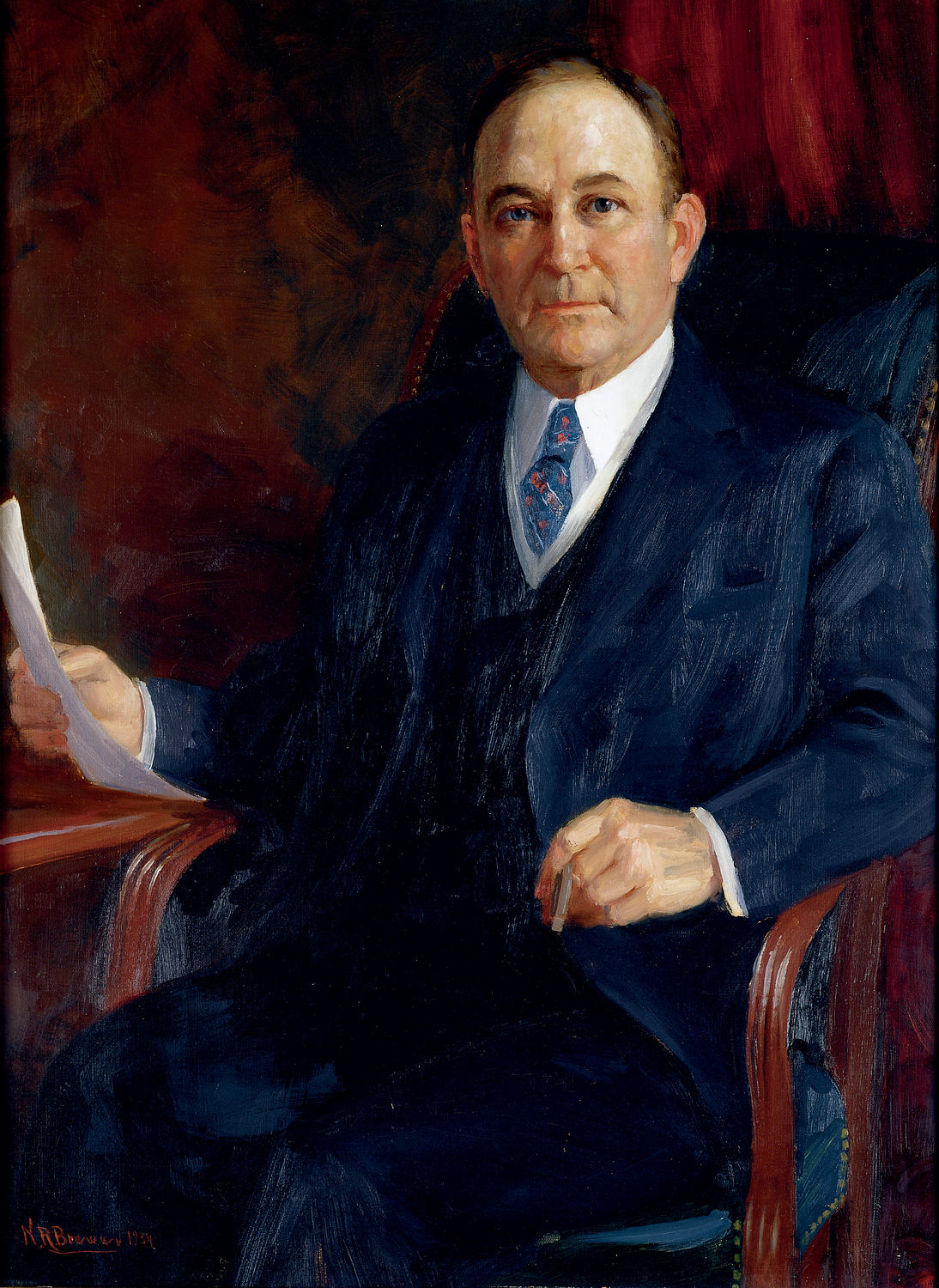
| Title | Joseph T. Robinson |
| Artist/Maker | Nicholas Richard Brewer ( 1857 - 1949 ) |
| Date | 1934 |
| Medium | Oil on canvas |
| Dimensions | Sight: h. 43.625 x w. 31.5 in. (h. 110.8075 x w. 80.01 cm)
Framed: h. 50.625 x w. 38.5 in. (h. 128.5875 x w. 97.79 cm) |
| Credit Line | U.S. Senate Collection |
| Accession Number | 32.00011.000 |
Known in his day as the “Abraham Lincoln of American art” for his rugged ideals and candid and forceful realism, Nicholas Brewer painted numerous Washington, D.C., notables, including President Theodore Roosevelt, and many governors. [1] For a time he maintained a studio in the Senate Office Building (now the Russell Senate Office Building). His portrait of Joseph T. Robinson was completed in 1934, shortly after the senator’s selection as majority leader. Following Robinson’s death in 1937, the remaining senator from Arkansas, Hattie Caraway, introduced a resolution to authorize acceptance of a gift of the Robinson portrait. The painting, which had been hanging in the office of the secretary of the Senate, was presented to the Senate by Robinson’s widow and friends several months later.
Born on the frontier of Minnesota, Nicholas Brewer later moved to New York City to study art. He exhibited widely, and won numerous awards during a long and illustrious career as a portraitist and landscape artist. Brewer was a strong advocate for the creation of a national art museum to encourage American painters. However, he consistently criticized abstract portrait art, explaining that a portrait must be “an actual transcript of a man’s face” in order to reflect his true character. [2] Brewer is also known for his portraits of Presidents Ulysses S. Grant and Franklin D. Roosevelt, Supreme Court Justice George Sutherland, and Vice President John Nance Garner.
1. ”Seventy-Seven-Year-Old Artist Finds President Jumpy,” Washington Post, 7 May 1935.
2. Ibid.
Joseph Taylor Robinson, a U.S. representative and senator from Arkansas, first won election to the House of Representatives in 1903. He continued in office until 1913, when he resigned to become governor of Arkansas. The state legislature, however, immediately elected him to fill a vacancy in the U.S. Senate. Robinson thus held three important political offices within a period of two weeks.
Joseph Robinson was the last senator chosen by the Arkansas state legislature before implementation of the Seventeenth Amendment, which provided for the direct election of senators. His Senate service began in March 1913 and continued until his death. Throughout his Senate career, Robinson promoted both the League of Nations and the Permanent Court of International Justice. In 1928 he ran unsuccessfully for vice president on the Democratic ticket headed by Alfred E. Smith. After serving as his party's minority floor leader for 10 years, Robinson became Senate majority leader in 1933. He played a major role in the passage of New Deal legislation, supporting President Franklin D. Roosevelt on almost every issue. The senator coauthored the 1936 Robinson-Patman Act, designed to protect small retailers from competition by large chain stores, and led the fight for Roosevelt's controversial “court-packing” plan to reorganize the Supreme Court and make it more amenable to New Deal legislation. Any chance for the proposal's passage, however, failed with Robinson's death while in office in 1937. His funeral service took place in the Senate Chamber.